Coping with WAGR Syndrome


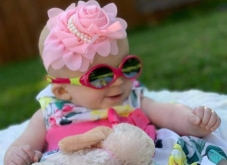
Every person with WAGR syndrome is a unique individual. No one with WAGR syndrome has ALL of the conditions listed, and if a condition is present, it is possible to be only mildly or moderately affected by it.
Learning about the conditions that can occur with WAGR syndrome can be challenging and overwhelming. Understanding the disorder is the first step to getting the help your child needs to thrive.
You can do this, and you don't have to do it alone. The families of the International WAGR Syndrome Association are here to support you with information, encouragement, and practical advice.
The International WAGR Syndrome Association is a US-based 501(c)(3) nonprofit organization that represents and supports families of and individuals diagnosed with WAGR syndrome.
The mission of the IWSA is to promote awareness, stimulate research, and support families affected by WAGR syndrome.
Learning about the complications of WAGR syndrome and connecting with parents of children/adults with WAGR syndrome can make a big difference in understanding and coping with the diagnosis. IWSA members are able to share helpful experience and practical tips, and offer priceless understanding and support.
This website features information and resources as well as a variety of ways to connect with the WAGR syndrome community around the world. The IWSA hosts a private Facebook group (for parents or primary caregivers only) and a public Facebook page, distributes electronic news and updates, and hosts annual conferences called “WAGR Weekend.”
The IWSA and its member families warmly welcome new members, and membership is free. If you love someone with WAGR syndrome, we hope you'll consider joining us!
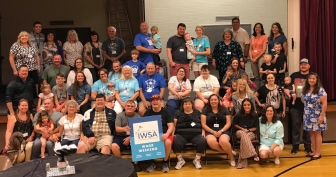
WAGR Weekend 2019 US
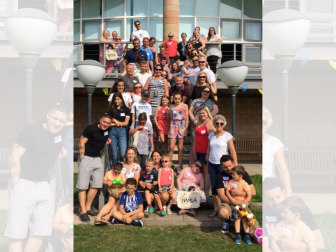
WAGR Weekend 2019 UK
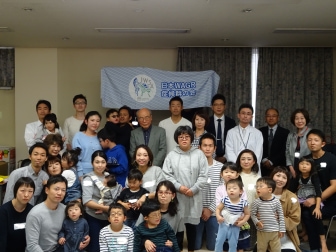
WAGR Weekend 2019 Japan
Most parents have hopes and dreams for their unborn child. When your baby is diagnosed with WAGR syndrome, those hopes and dreams are suddenly changed--and shock, confusion, and grief surface. This section addresses some of the emotions many parents experience, and includes suggestions for dealing with the impact of the diagnosis on your marriage, your other children, and on your family and friends.
Parents often feel “numb” after receiving the diagnosis. This is your mind’s way of protecting you from more pain than you can handle. As shock fades, you may experience other reactions, such as forgetfulness, feeling as if you are in a bad dream, difficulty concentrating or denial.
When you are told your child has WAGR syndrome, it is natural to feel sad. Many parents go through a period of mourning for the child they expected to have. It may help if you express this sadness, and if your family and friends encourage you to share and talk about your feelings.
Many parents ask, “Why did this happen to us?” and many feel angry. It helps to talk about this feeling too. It is very common to want to assign blame to someone or something. Many parents wonder whether something they did before or during pregnancy caused their child to have WAGR syndrome. It’s important to remember that there is nothing you could have done or not done to cause or prevent this condition.
Not all parents feel guilt but many do. This is also a natural reaction, even though the fact that your child has WAGR syndrome is certainly not your fault.
Shock, sorrow, anger, and guilt are common and normal feelings. They may never go away completely but as time passes they will lessen. Joining a support group can be a good way to cope because it’s comforting to know that others have felt the same way. It can also be helpful to learn from other parents and to share the lessons you have learned as well.
The rate of divorce among parents of children with special needs is thought to be higher than average. There are probably many reasons for this. Men and women often handle crisis differently, and the birth of a child with WAGR syndrome is a crisis. Mothers frequently react with tears and a great need to talk about and express their feelings. Fathers may feel the need to contain their emotions by not talking about them. These conflicting needs and coping styles can make each partner feel misunderstood and alone. Simply being aware of and accepting these differences can be helpful. Couples do need to communicate and a little compromise can go a long way–and can help each partner to have a sense of working together for the benefit of the family. If you find that your marriage is suffering and effective communication is difficult, consider couples counseling to work through this difficult time. Parents of older children with WAGR syndrome often say that finding constructive ways to weather this crisis brought them closer together.
Children usually take their cue from their parents—if you are positive about the new baby, they will be too. You can explain to them that this new baby may need extra care. You can also reassure them that in time, this little brother or sister will be a great playmate and someone they will grow to love.
Most research shows that children who have a sibling with disabilities get along well and are fond of them. Many adults report that growing up with a disabled sibling taught them a great deal about understanding, responsibility, and compassion.
Grandparents can go through many of the same feelings as parents do as they grieve for both their child and grandchild. Denial of the child’s diagnosis is common, and usually reflects an intense need to believe that all will be well. Whenever possible, include grandparents in your child’s care and share information with them. If they know that children with WAGR syndrome do best when their caregivers are both realistic and optimistic, they may be better able to accept their grandchild just as he is. A grandparent’s positive and encouraging attitude can be a tremendous asset for a child and the entire family unit.
Friends, co-workers, strangers, and even relatives can unwittingly say thoughtless or hurtful things out of embarrassment and ignorance. Again, most people will take their cue from you. If you are positive about your child and his future, they will learn to be positive also.
A little information about basic genetics can be a big help with understanding the diagnosis of WAGR syndrome.
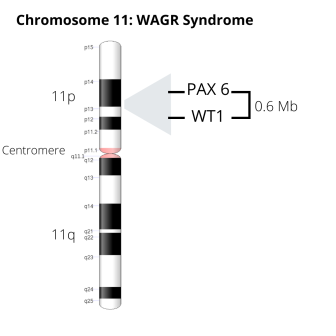
WAGR syndrome is a very rare disorder. It is likely that most doctors you encounter will be unfamiliar with it. But many doctors are willing to learn, and will accept you as a partner in your child’s care, especially if you are also willing to learn. This information will help you to develop successful parent-physician partnerships.
Parents of children and adults with WAGR syndrome interact with many doctors and medical professionals. The best parent/physician relationship is a partnership--with both parties contributing to the goal of best care.

Individuals with WAGR syndrome often have multiple medical diagnoses and a variety of medical needs. It can be challenging to understand and keep up with the medical care needed at each stage of your child’s life.
Children with WAGR syndrome usually have significant vision impairment, as well as some degree of intellectual impairment. As a result, they may not crawl, walk, or talk at the same age as their peers. Very young children with WAGR syndrome benefit from Early Intervention services, which can help them achieve developmental milestones sooner than they could without such help.
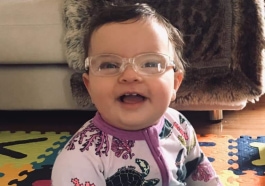
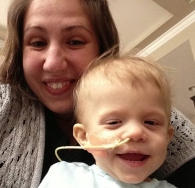
About half of individuals with WAGR syndrome develop Wilms tumor, so IWSA parents have a broad range of experience in navigating this difficult diagnosis. Suggestions and helpful information are provided here to help you get through this challenging time.
This section is designed to introduce individuals of all ages with WAGR syndrome. We hope these stories and photographs will help to encourage and inspire you.
These stories from IWSA families, are intended to provide a realistic glimpse into the lives of families raising and caring for individuals with WAGR syndrome.
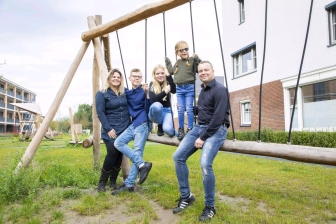
These stories from IWSA siblings, are intended to provide a realistic glimpse into life and the impact of growing up with a sibling with WAGR syndrome.
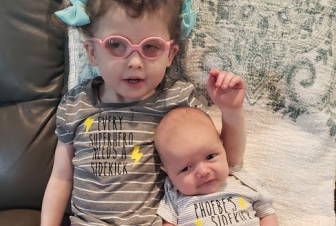
The WAGR Syndrome Patient Registry is an important research project created by the IWSA. It was launched in 2015 and is the largest and most comprehensive collection of data involving patients with WAGR syndrome worldwide.

Participation in the Registry is free and involves completing an online or paper questionnaire. Data collected in the Registry can help researchers learn more about this disorder, leading to more effective treatments and therapies.
Data in the WAGR Syndrome Patient Registry is secure, and may only be accessed by formally approved researchers. All information is de-identified, meaning that your information is not identifiable by name. Participation is voluntary and you may choose to remove your data at any time.
Sign up for News & Events
COPYRIGHT© 2025 IWSA / International WAGR Syndrome Association
